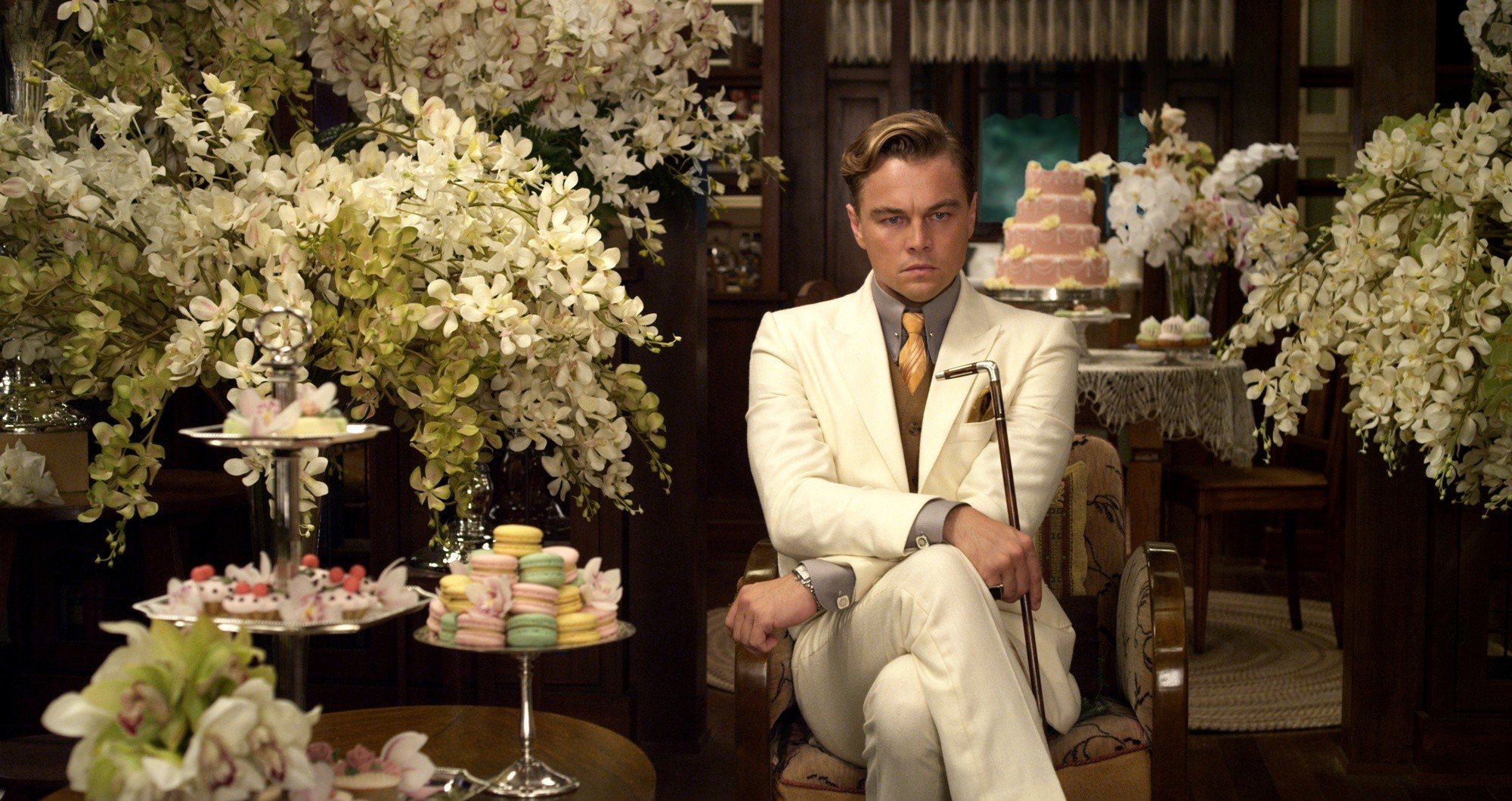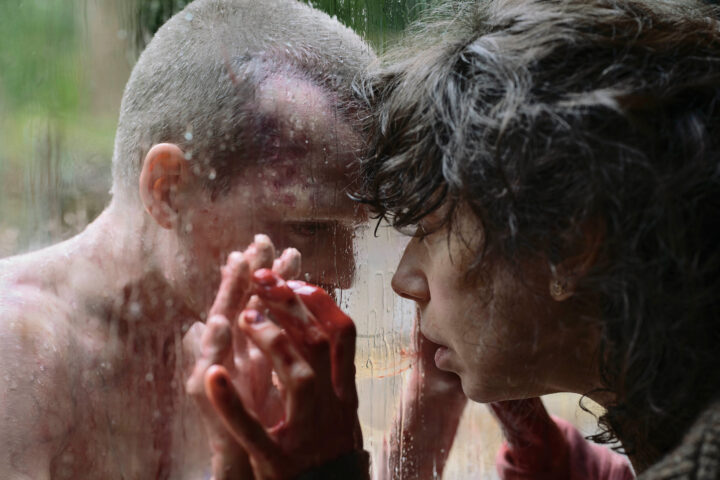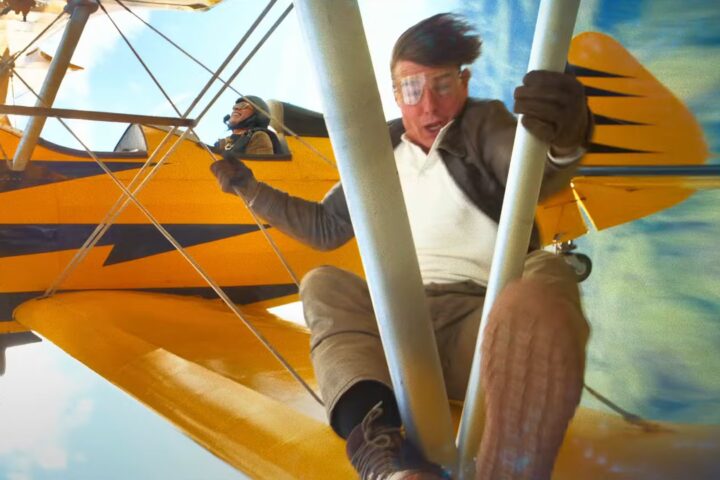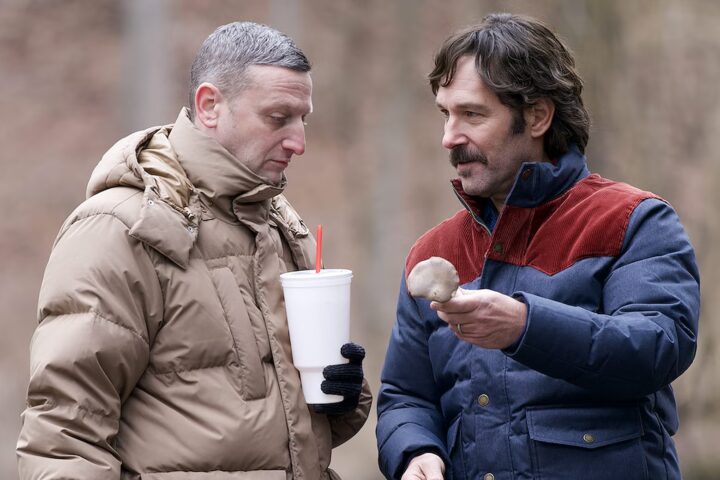Say what you will about Baz Luhrmann’s long-awaited (and much-delayed) vision of The Great Gatsby—a lavish, decadence-drunk period fantasia equal parts artifice and genuine emotion—but all that glitters (literally off the screen here in 3D) is all that matters in this surprisingly faithful adaptation of F. Scott Fitzgerald’s monumental novel. And a hell of a lot glitters.
Anyone familiar Strictly Ballroom, Romeo + Juliet, Moulin Rouge and even the hackneyed Australia well knows Luhrmann’s signature hyperactive aesthetic, a feverish mash-up of the audacious and the awkward, veering between manic caricature and sincere melodrama, simultaneously distancing and involving us.
But just when good judgment tells us to write off his concoctions as folly they manage to work up real feeling, and The Great Gatsby is no exception. Luhrmann’s go-for-broke depiction of the Roaring 20s in vintage newsreels, an Art-Deco recreation of Manhattan replete with a shimmering constellation that is Times Square, and then later in bacchanalian debaucheries courtesy of Luhrmann’s production designer and wife Catherine Martin—is, for awhile, the whole, eye-popping show. But when the love story begins to take shape courtesy of three appealing stars, particularly the emotive Leonardo DiCaprio in a sun-kissed turn of bravado and despair, the camera settles down and the performances draw us in.
Adapted by Luhrmann and Craig Pearce (who also penned the director’s previous pictures) Gatsby’s set-up employs the flashback memoirs of depressed, institutionalized alcoholic narrator Nick Carraway (Tobey Maguire), encouraged by a shrink to document his unresolved recollections circa Long Island, summer of 1922—the life-changing moment he was thrust into the world of mysterious billionaire Jay Gatsby (DiCaprio), the personification of the American Dream, a boy of meager lineage who became a soldier and then a billionaire playboy.
Carraway moves into a quaint seaside cottage next to Gatsby’s sprawling digs, first finding himself invited to parties of thousands at Gatsby’s mansion, and soon after into the enigma’s private world as Gatsby’s only confidant. He also just happens to be the first cousin of Gatsby’s lost love Daisy (Carey Mulligan), a glammed-up waif of means unhappily married to Tom Buchanan (Joel Edgerton), the wealthy, supercilious blueblood who enjoys the private company of lower class Myrtle Wilson (Isla Fisher), herself married to hapless garage mechanic George (Jason Clarke).
Carraway facilitates a reunion between former lovers Gatsby and Daisy (in the picture’s sweetest sequence, set in and around the mansion playground to the strains of Lana Del Rey’s haunting Young and Beautiful), but those who have read Fitzgerald know that isn’t quite to be. In full movie star mode, DiCaprio touchingly depicts Gatsby’s romantic zeal for his raison d’être, always just out of reach, humbled at the foot of his very long pier, gazing at the famous, green, East Egg beacon across the bay from his West Egg fortress.
The romantic quagmire culminates in a late picture showdown set in a Manhattan hotel room during a heat wave, a terrific actors’ scene where DiCaprio peels back Gatsby’s sophisticated veneer in a grand play for Daisy’s hand, a misjudgment of social politics, new and old money. The actor is absolutely electrifying while swaggering Edgerton, like the pick chipping away at the room’s behemoth block of ice, takes him apart piece by piece, and Daisy wavers.
Unlike the tepid 1974 film version, which contained an effective Robert Redford performance in a stolidly straightforward adaptation co-starring Mia Farrow, the new movie works hard to engage us with Maguire’s easygoing, everyman voiceover narration, visualized in chunks of prose floating off the screen in 3D, suggesting that despite his free visual and aural adaptation, Luhrmann maintains a reverence for Fitzgerald’s text.
The showstoppers in the picture’s first half are fabulously mounted party sequences at the Gatsby estate that play like champagne fizz, corks popping and confetti streaming, Busby Berkley chorus lines in and out of pools, acrobats, more confetti, flamboyant flappers and dancing girls to the tune of Jay-Z (who co-produced) and Beyonce, an anachronistic amalgam of pop culture and culture-culture, vintage and modern, class and tawdriness. Did I mention the confetti? With a camera swirling above and below and through the festivities (in largely unnecessary 3D), this is cinema as glorious excess, not unlike the later pictures (The Devils, Altered States) of Ken Russell, inspired visual hallucinogens.
Everything in Gatsby is big, including the movie-movie entrance of the man himself, accompanied by George Gershwin’s Rhapsody in Blue and a sky full of fireworks, a golden-boy superstar of the jet-set, initially a symbol of American prosperity and excess and then later a deconstruction of ego and celebrity. Carraway, and we, are drawn into his orbit, and the two actors (long-time real life friends) share a suggestive, tete-a-tete chemistry. And Mulligan, the most sympathetic of actresses, does what she can to humanize Daisy, a heartbreaker who never met a man she loved as much as herself.
In the middle of the party is an arresting new Australian actress named Elizabeth Debicki as the wide-eyed, tony professional golfer/socialite Jordan Baker, leggy companion to Daisy and perfect evocation of a high-living, cocktail swigging party girl gussied up in a Louise Brooks pageboy, flapper-ed to the nines. The actress cuts a lean, impressive line through the picture each time she’s onscreen.
Perhaps reductively, Luhrmann pumps up a fairy tale quality here—an underscoring of good, evil, true love, palaces as prisons—perhaps a broader than intended take on Fitzgerald’s clash between idealism vs. reality and the price of naked ambition and class limitations. But despite Gatsby’s clear associations with organized criminal and Prohibition-peddler Meyer Wolfsheim (Bollywood star Amitabh Bachchan), a great pleasure of this adaptation is that he remains a sympathetic, romantic and immensely likable anti-hero. Such is the power of DiCaprio’s charisma, and coming off a career high in Quentin Tarantino’s recent Django Unchained, the actor seems to have graduated into new movie authority.
If you’re looking for a literate, Merchant-Ivory adaptation of the novel, you don’t know Baz Luhrmann. Love him or hate him, Luhrmann is, at best, a singular filmmaker and worst, a deranged auteur—like Tarantino, his movies are all about him. While some will revile The Great Gatsby‘s sensory overload—the first half has nary a shot lasting longer than a few seconds—the picture ultimately delivers exactly what months of trailers promised in a populist, high-gloss carnival of tragic love amongst the pretty, privileged set, if not quite a dissection of facile youth without loyalty or a compass. If Fitzgerald’s work is often hailed as a Great American Novel, it will have to settle for a movie version that is merely very good.
High-order eye candy with a big heart, The Great Gatsby is fun to watch—and that’s enough.
3 1/2 stars.



